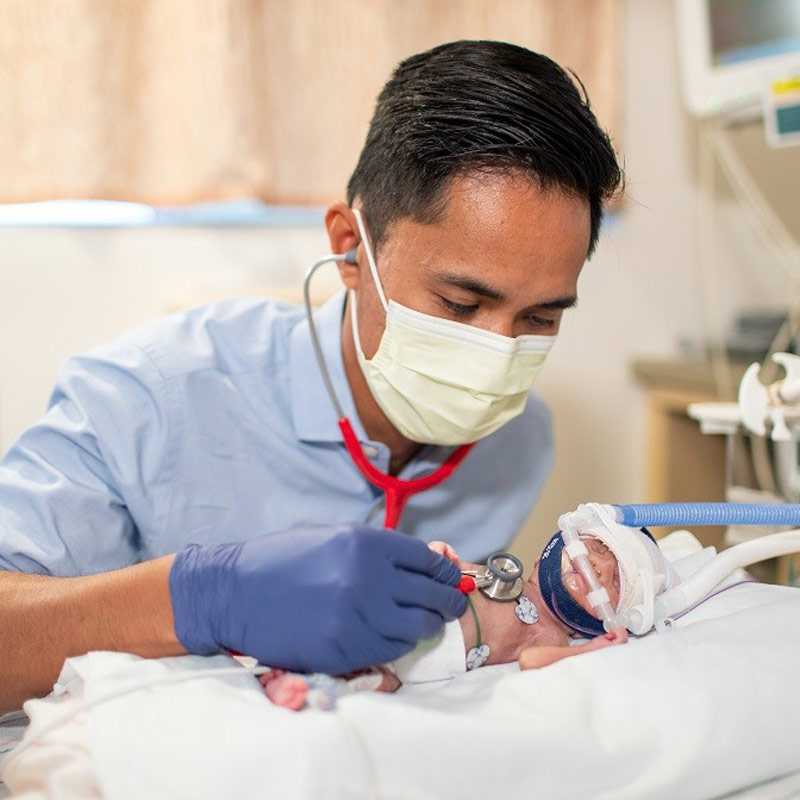It’s hard to imagine that there are premature babies born so small – even smaller than a “preemie” –they are in a new weight class. These micro-preemies are also known as extremely low birth weight (ELBW) infants and are defined as being born at less than 28 weeks gestation (full term is 40 weeks) or weighing less than 1,000 grams. To put that into perspective, many of these babies weigh less than 2 lbs., about equal to a quart of milk.
Recently, MemorialCare Miller Children’s & Women’s Hospital Long Beach launched a special program within its Neonatal Intensive Care Unit (NICU) to care for these extremely premature infants. The highly trained, multi-disciplinary medical team of physicians, nurses, clinicians and therapists in the Extremely Low Birth Weight Program, part of the Small Baby Center, exclusively serves the unique needs of these incredibly premature newborns.
Now, while only 1.38 percent of babies are born this tiny, according to the Centers for Disease Control and Prevention (CDC), the number of survivors has been rising primarily due to increases in resuscitation after birth and in births of multiples. An extremely low birth weight infant often has an increased risk for complications even over other preemies in the NICU. These babies tend to have:
- Lower oxygen levels at birth and difficulty breathing
- Inabilities maintaining or regulating body temperatures
- Difficulties with feedings and gaining weight
- Higher rates of breathing, gastrointestinal (GI) or neurological issues
This is where the Small Baby Center at Miller Children’s & Women’s comes in. The Small Baby Center is within the Neonatal Intensive Care Unit, while the Extremely Low Birth Weight Program is within the Small Baby Center, similar to how some schools have a school-within-a-school model. Studies show that extremely low birth weight infants do better in a dedicated, high-volume hospital like Miller Children’s & Women’s where a specially trained team provides evidenced-based care. The Small Baby Center is designed to provide a healing environment with developmentally appropriate lighting and sound.
Antoine Soliman, M.D., medical director, NICU, Miller Children’s & Women’s, was recently published in the journal of the American Academy of Pediatrics for his contribution to a research study that supports the value of having a separate Small Baby Center to improve quality and outcomes in extremely low birth weight infants. Data over a 6-year period showed that with a Small Baby Center, extremely low birth weight infants saw a reduction in chronic lung disease and infections. The study also showed that patients were poked and prodded less for testing and were discharged weighing more.
“The extremely low birth weight infants that we care for have very specific needs, so we developed our program to help meet those needs,” says Dr. Soliman. “Our Small Baby Center and Extremely Low Birth Weight Program are based on the latest research studies and evidence and allow us to provide these patients with support that smaller NICUs in the region may not be able. This can lead to far better outcomes.”
Miller Children’s & Women’s has one of the largest NICUs in the state, complete with an entirely dedicated Small Baby Center. Hospitals from around Southern California use Miller Children’s & Women’s Access & Transport Center to bring extremely low birth weight and other premature infants from their hospital to get the high-acuity care for which Miller Children’s & Women’s is known.

